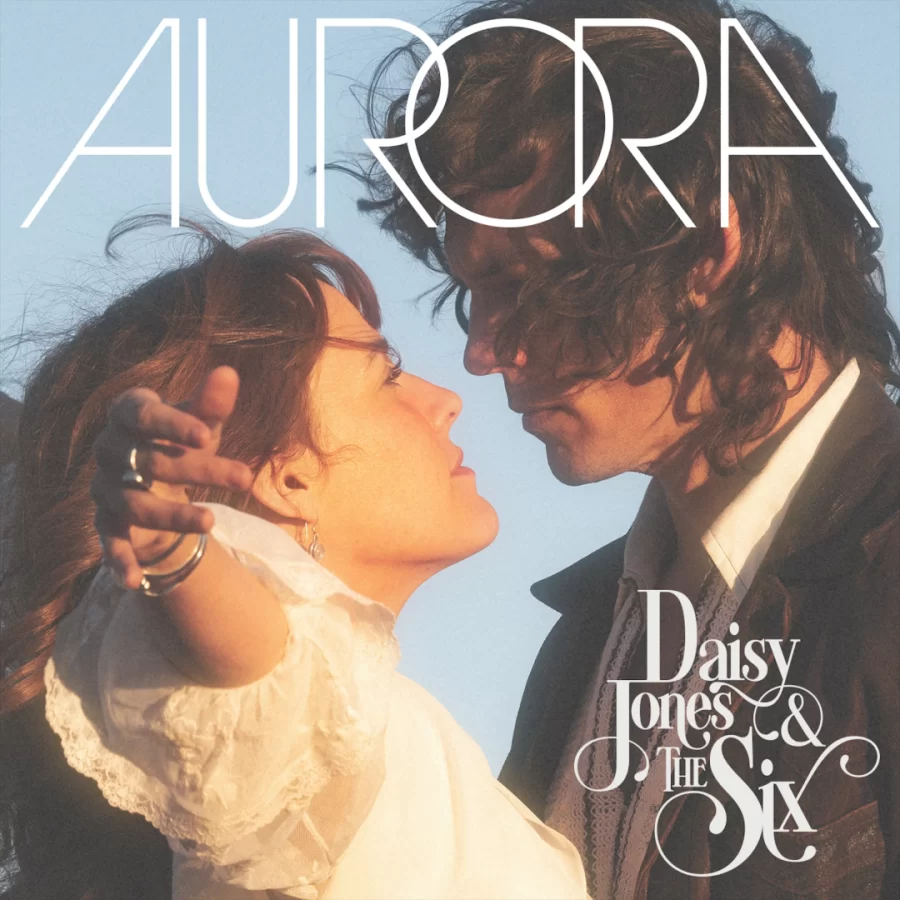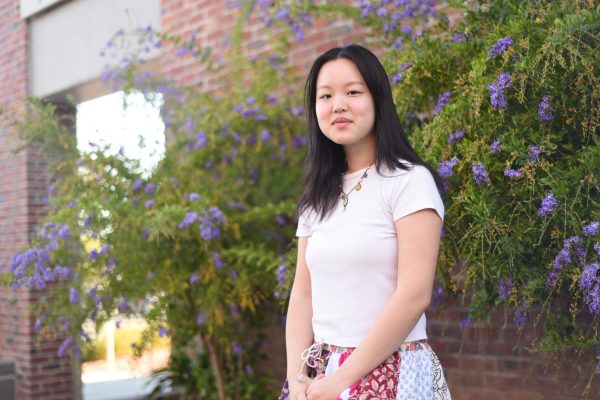‘Aurora’ is a manifestation of classic-rock nostalgia
The fictional ‘70s-esque album struggles to find its voice in the contemporary world
The “Aurora” album cover captures the chemistry between lead singers Daisy Jones and Billy Dunne.
March 14, 2023
“The chemistry between their voices — his vulnerability, her fragility — it grabs and doesn’t let go.”
The album “Aurora” was released on March 2, 2023 alongside the TV series adaptation of the novel, “Daisy Jones & the Six,” which documents the rise and fall of a fictional and infamous ‘70s band with the same title.
“Aurora” encompasses the messy love affair that transpires between the band’s two lead singers, Daisy Jones (played by Riley Keogh) and Billy Dunne (played by Sam Claflin). Attempting to emulate the aura of its inspirations, “Aurora” draws sounds and narratives from acclaimed classic rock band Fleetwood Mac to traverse into the nostalgia of the ‘70s classic rock genre — it features rhythmic, crisp drumming, soulful guitar riffs and captivating harmonies. Tracks such as “Kill You To Try” present the imagined legacy of Daisy Jones & the Six. Keogh and Claflin riff back and forth, fighting to be heard over each other, as if clamoring to be the one in power in their relationship. In the messiness of it all, a riveting story emerges, begging listeners to understand the fraught love affair.
The 4th track, “The River,” epitomizes the eccentric character of Daisy Jones as Keogh belts with a croaky voice and angsty tone, “I know, I know, I know, I know, I know I lost you here.” Keogh demands a fierce presence with her vocals, experimenting with a variety of melodies, high ranges and fragile voice cracks. Another outstanding feat in “Aurora” is Jones’ solo ballad, “Two Against Three,” which vulnerably indicates Daisy’s uncertainty about finding love. The lyrics “I’m nowhere near you / Nowhere near where I should be / Feelin’ our hearts a-beatin’ / Tenderly two against three” beautifully draw an honest image of a distant love that the protagonist longs for. With Keogh’s voice shining and a distinct lyrical perspective — an aspect that the rest of the album lacks — “Two Against Three” is one of the only tracks completely confident in its own identity.
However, “Aurora” tends to make trade-offs between the quality of vocal performances and instrumentation. An example of this is Dunne’s solo track, “Please.” It’s a vulnerable and honest exploration of his substance abuse recovery, but overly drawled vocals and a heavy, monotonous beat create an unpleasant and almost theatrical experience. It painfully stands out sonically and does not belong aesthetically. Inversely, the track “Regret Me” offers amusing musicality and carefree vocal performances, building up to memorable listening moments. But its lyrical quality lacks variety and moral, simply repeating the sentiment of forgetting someone.
Repurposing the sounds and themes from well-known bands and albums prevents “Aurora” from having a unique brand in the modern era. Attempting to be the mirror image of well-known ‘70s classic rock albums makes it just that — a weak imitation of albums that have already been cemented in the music industry for decades. Its emphasis on musicality over meaning prevents the album from having relevant lyricism. In its opening and title track, “Aurora,” the line “I kinda thought that night was gonna last forever” repeats 11 times to close, with very little vocal variation. Repetitions such as these reappear throughout the album in multiple songs, giving rise to a monotonous emotional experience. While it may lack originality in the genre itself, the album revives retro sounds that rarely appear in the modern music scene. Though irresponsible with this task at times, “Aurora” remains a forceful tribute to the ‘70s classic rock era, breathing life into the world of Daisy Jones & the Six.
3/5





























